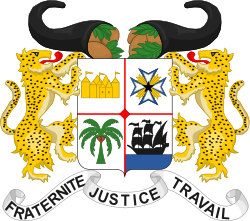 |
|---|
| |
Elections for the Territorial Assembly were held in French Dahomey on 30 March 1952. Sourou-Migan Apithy's Republican Party of Dahomey won 19 of the 32 second college seats. [1] Only ten members of the Legislative Council elected in 1947 were re-elected. [2]